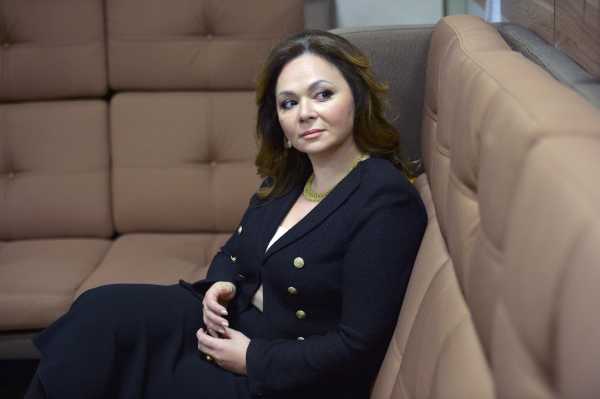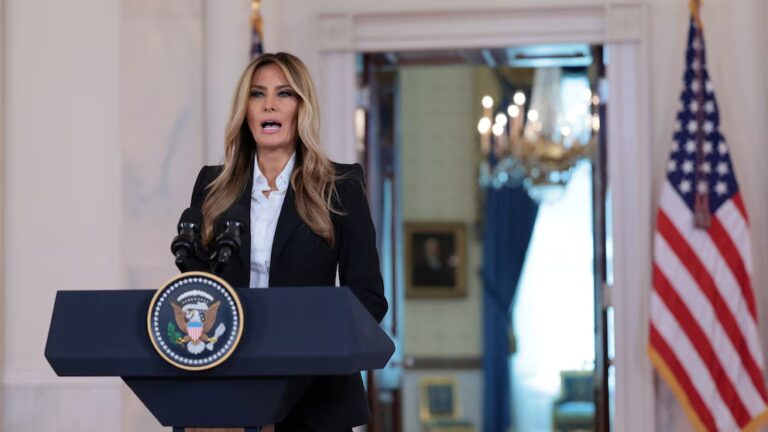
Natalia Veselnitskaya — the Russian lawyer who infamously met with Donald Trump Jr. and top Trump campaign officials at Trump Tower during the 2016 campaign, promising dirt on Hillary Clinton — has been indicted by the Justice Department in a separate case.
Geoffrey Berman, the US attorney for the Southern District of New York, announced the unsealing of this indictment Tuesday morning. It charges Veselnitskaya with obstruction of justice, alleging she submitted “an intentionally misleading declaration” to a US federal court in 2015.
The indictment is unlikely to go anywhere, since Veselnitskaya is unlikely to come to the United States and face arrest. And it has no explicit link to the Trump-Russia investigation or Mueller’s probe.
What it does do, however, is allege that Veselnitskaya once worked closely with a Russian government office, and then tried to mislead a US court about it.
The specific allegation relates to a Russian government document that purported to exonerate clients of Veselnitskaya who were involved in a money-laundering action unfolding in US court.
SDNY prosecutors allege that emails, track changes, and other evidence show that Veselnitskaya herself helped a Russian prosecutor’s office write and edit this supposedly exculpatory document. Then, they say, she filed a misleading declaration in US court, under penalty of perjury, essentially pretending that she had no involvement in writing the document.
In any case, while the indictment has no direct connection to the Trump Tower meeting, it does provide context for that meeting — specifically, about what Veselnitskaya may have been up to, and about her links to the Russian government.
The backstory of the Magnitsky Act, Bill Browder, and the Prevezon case
The complex backstory here involves Bill Browder, an investment fund CEO who had a great deal of business in Russia before the Russian government turned against his company and essentially forced him out of the country in the mid-2000s.
Browder then hired tax lawyer Sergei Magnitsky to defend his company, and Magnitsky began documenting what appeared to be a remarkable official plot to take control of Browder’s companies and steal $230 million the companies had paid to the Russian government in taxes. In apparent retaliation for exposing this, the Russian government arrested Magnitsky, and he soon suffered health problems in prison, where he died in 2009.
The US government responded in 2012 by enacting the “Magnitsky Act,” which allowed for sanctions on individuals thought to be involved in the scheme. The Russian government swiftly responded by banning US adoptions of Russian children.
The matter finally made it to the US court system in September 2013, when the US Attorney’s Office for the Southern District of New York used information Browder provided them to file a forfeiture complaint against a Russian-owned company, Prevezon Holdings. Prosecutors alleged that Prevezon helped launder the proceeds from the scam involving Browder’s companies.
Prevezon’s owner, Russian business executive Denis Katsyv, launched a multimillion-dollar legal and lobbying campaign to fight the court action and oppose the Magnitsky Act generally — a campaign overseen by his family’s lawyer, Natalia Veselnitskaya.
Why Veselnitskaya was charged
In 2014, as the money laundering action unfolded, the Russian government’s prosecutor general’s office sent the US a document outlining its supposed “investigative findings” in the case. Per the indictment, these “supposed findings purported to exonerate all Russian government personnel” as well as Veselnitskaya’s clients, and instead accused Browder’s employees of the fraud.
The following year, in November 2015, Veselnitskaya submitted a sworn declaration in US court, claiming that the prosecutor general’s office had rejected her efforts to get a copy of those investigative findings, and that she instead had to get a copy through a Russian court proceeding.
SDNY prosecutors allege that this sworn declaration was intentionally misleading — because, they say, Veselnitskaya had in fact worked closely with the Russian prosecutor general’s office to help write and edit this document exonerating her clients.
“Veselnitsksaya sent emails to the personal email account of a supervising Russian prosecutor in the Russian Prosecutor General’s Office attaching drafts” with “numerous tracked changes and comments,” the indictment claims. For instance, she allegedly inserted 29 paragraphs that largely made it into the final document.
So the Russian government document that claimed to exonerate Veselnitskaya’s client was in fact partly written by Veselnitskaya herself — and she hid this from the US court, instead pretending that it was an independent document that she only obtained with great difficulty.
For this, SDNY prosecutors have now indicted Veselnitskaya for obstruction of justice. (The Prevezon case itself was eventually settled in May 2017, though legal wrangling over Prevezon’s payment of the settlement has followed.)
This isn’t about the Trump Tower meeting — but it does provide context to it
There’s nothing explicitly in this indictment about Trump or the Mueller probe. Veselnitskaya is instead being charged for conduct that took place months before she sat down with Donald Trump Jr., Paul Manafort, and Jared Kushner in June 2016.
Yet much of what she is said to have brought up in the infamous meeting is connected to all this. Per testimony and Manafort’s notes from the meeting, Veselnitskaya mentioned Browder, Russian adoptions by American families, and the Magnitsky Act.
The allegation that Veselnitskaya worked closely with the Russian prosecutor general’s office is also intriguing, considering that the email setting up the Trump Tower meeting claimed a “Crown prosecutor of Russia” would be providing anti-Clinton dirt to the Trump campaign.
Rob Goldstone, the publicist who wrote that email to Don Jr., has claimed that this term was just an exaggerated reference to Veselnitskaya herself. But many have long speculated that the reference to a “Crown prosecutor” referred to Russia’s prosecutor general, Yuri Chaika. Chaika has “a long and storied background in kompromat,” according to the New York Times.
All parties involved in this meeting have claimed it was essentially a bust — that Veselnitskaya provided no useful dirt, and that there was no follow-up during the campaign. Special counsel Robert Mueller’s office has investigated the meeting, but in the year and a half after news of it became public, no charges about it have yet been filed.
Sourse: vox.com






